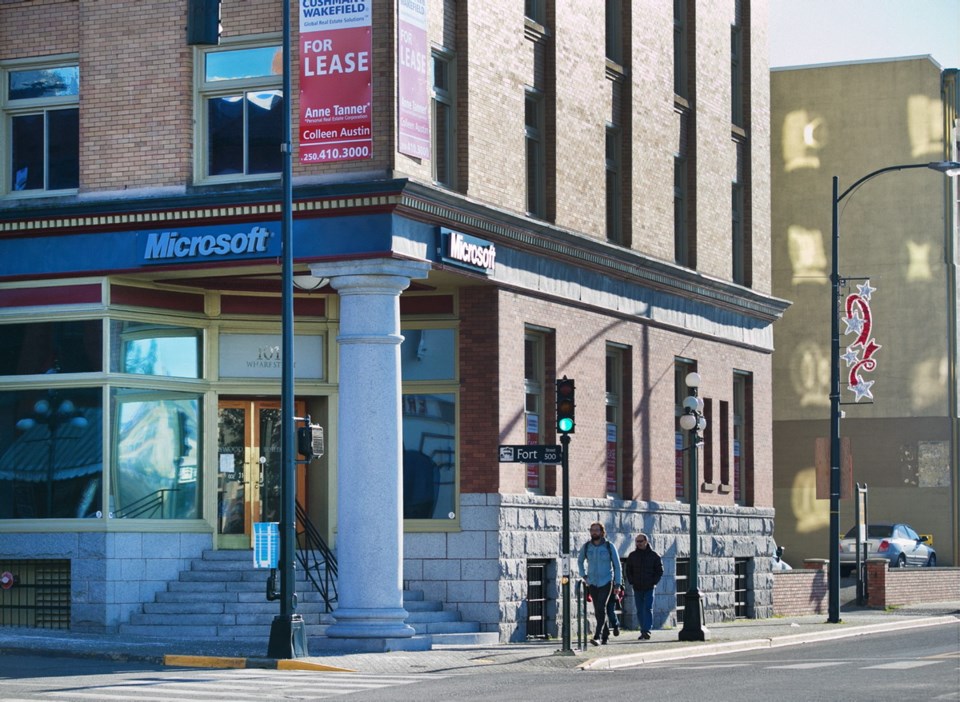Less than two years after opening a game design studio in downtown Victoria, Microsoft has closed its doors, leaving at least 30 people out of work.
In a brief statement released to the Times Colonist, the company said it was part of a plan to consolidate its resources.
“This was not an easy decision, but one guided by our desire to centralize development in our Vancouver studios,” the company said. “We are working closely with all employees affected by this change to identify open positions in other studios, and we remain committed to doing business in British Columbia.”
Microsoft did not make anyone available to speak to the media Wednesday. The company would not say how many employees were affected.
“It was great to have a large, well-known brand like Microsoft come to town and we’re sorry to see them go, but in the end it wasn’t a giant studio,” said Dan Gunn, executive director of the Victoria Advanced Technology Council. “Fortunately, we have seen the game-design sector start to expand here since 2007 and I think a lot of these people will get picked up by other studios, and I wouldn’t be surprised if one or two of them started a studio of their own.”
Gunn wouldn’t theorize on why Microsoft shut its doors, though he dismissed the idea that it could be tied to Oak Bay resident Don Mattrick, the head of Microsoft’s gaming division, leaving the company earlier this year to join game developer Zynga.
“I think we all hoped they would continue to expand. Don Mattrick was obviously a massive champion for that office and seeing him go caused us to take notice, but it’s tough to know the inner workings of a large corporate giant like Microsoft,” he said. “When a head office is in another country and making large corporate decisions, often a smaller outpost can be a victim to a broader strategy.”
Microsoft opened the Victoria studio in early 2012 in the Dogwood Building at 1019 Wharf St. At the time, the company said there were plans to expand to as many as 150 employees over the next three years.
The company initially leased four floors in the building at the corner of Wharf and Fort streets, but the studio used only two of them.
Microsoft said it chose Victoria for its proximity to company headquarters in Redmond, Wash., and its livability, which was expected to help attract the best and brightest in creative, production and design in the global gaming industry.
The closing was met with some surprise within the game-design sector, which has grown to 18 local studios employing about 240 people.
“This was not expected,” said Kixeye general manager Clayton Stark. “But it has nothing to do with our sector, it has to do with a big company making a decision and does not herald a slowdown.”
Stark said Microsoft’s closing may actually give the sector a boost.
“Is it a blow? I don’t think so for selfish reasons — it helps the rest of us because there is some talent there and this means more people in the available talent pool,” he said.
Alex Mendelev, CEO of newly opened TinyMob Games, said his company has taken advantage of the opportunity and hired some of the Microsoft staff.
“[Victoria’s gaming sector] is a pretty thriving industry and I’m sure these guys will find jobs in one of the other 18 companies,” he said. “They are a very talented bunch of guys, and my understanding is many of them have multiple offers on the table right now. I don’t think they will have any trouble finding work in town.”



